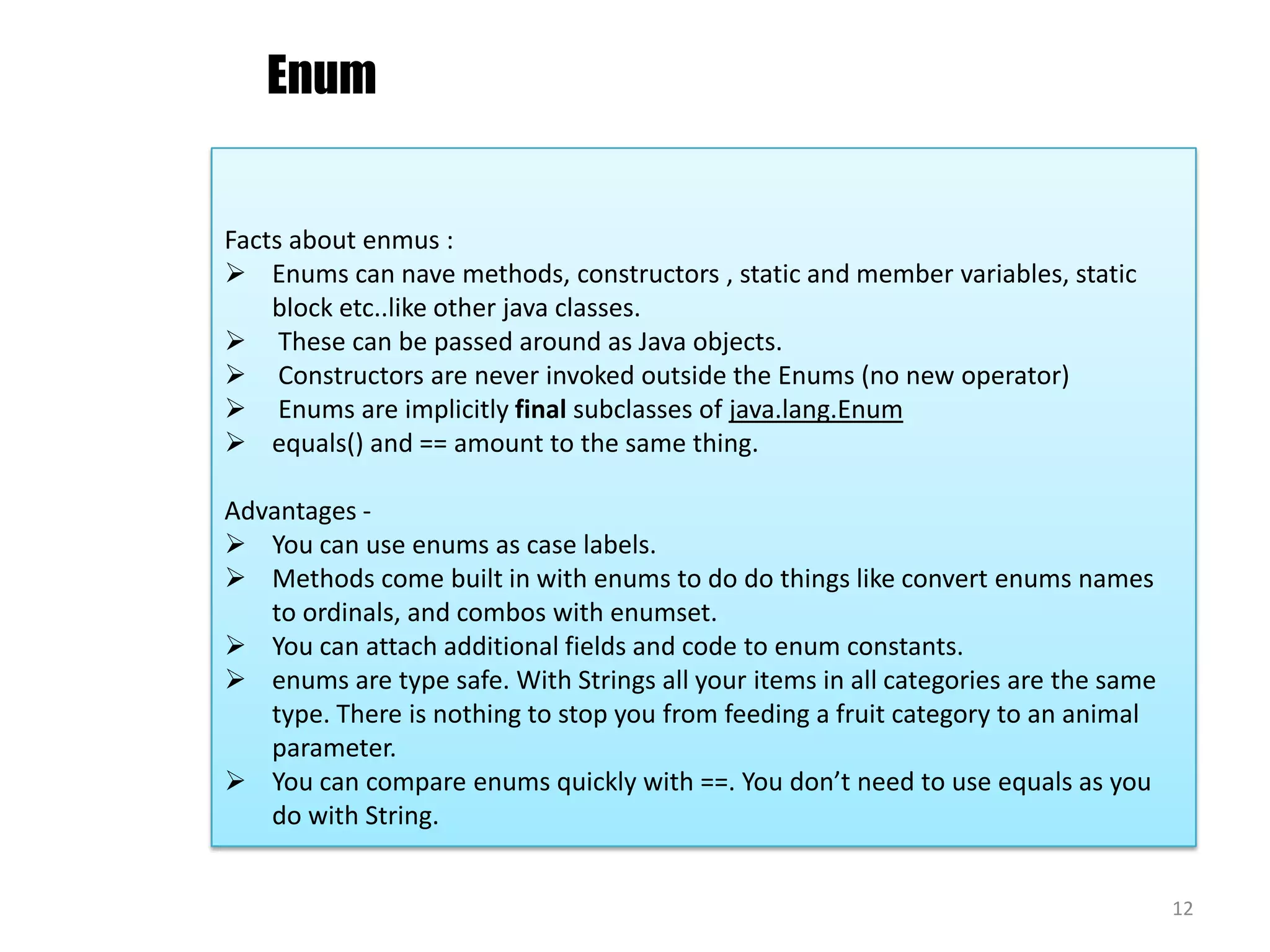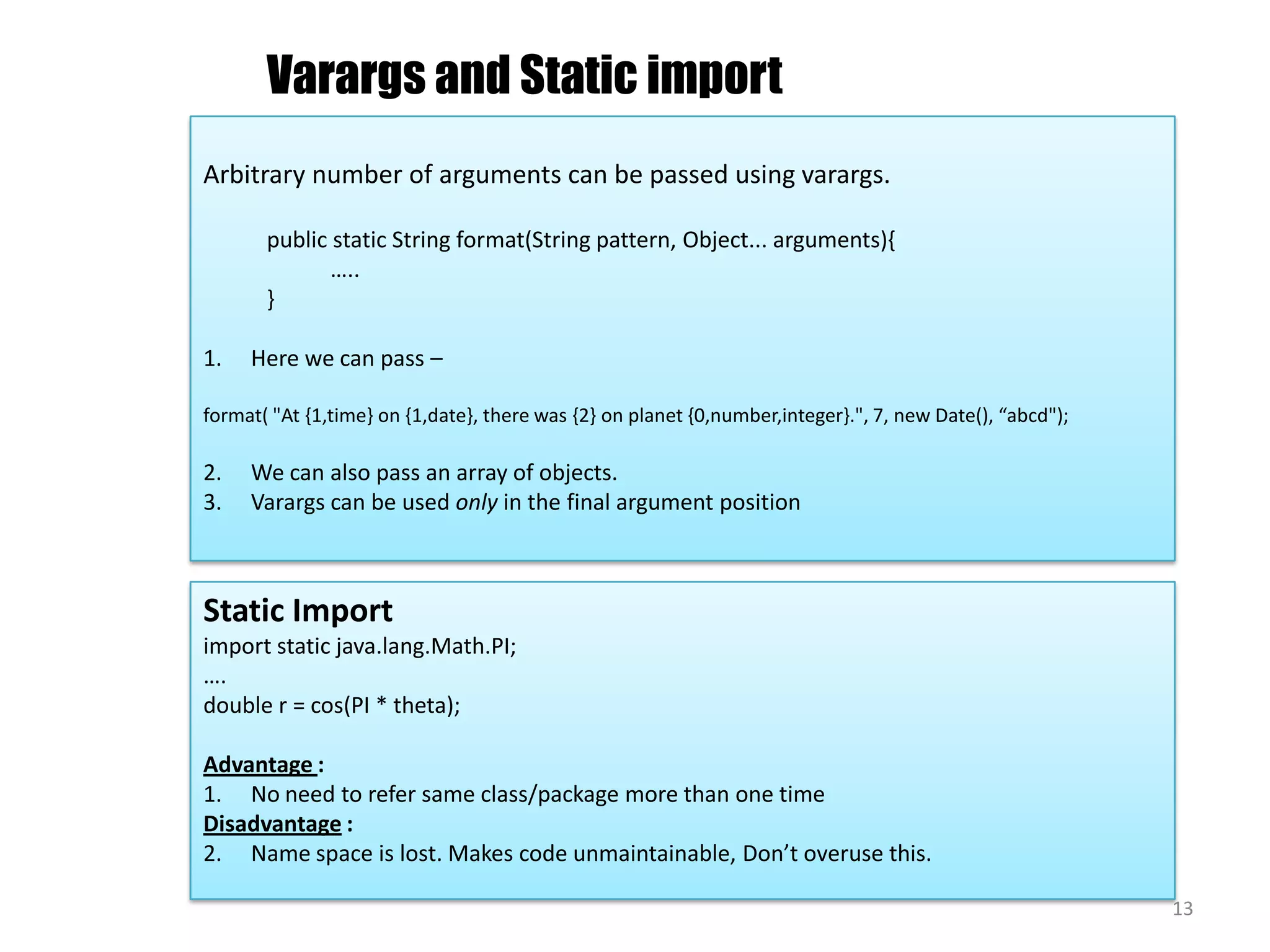This document provides an overview of several Java generics features including: generics allow compile-time type safety for collections without casting; the enhanced for loop automates use of iterators to avoid errors; autoboxing/unboxing avoids manual conversion between primitive types and wrapper types; typesafe enums provide benefits of the typesafe enum pattern; and examples of using generics with classes, methods, and collections.
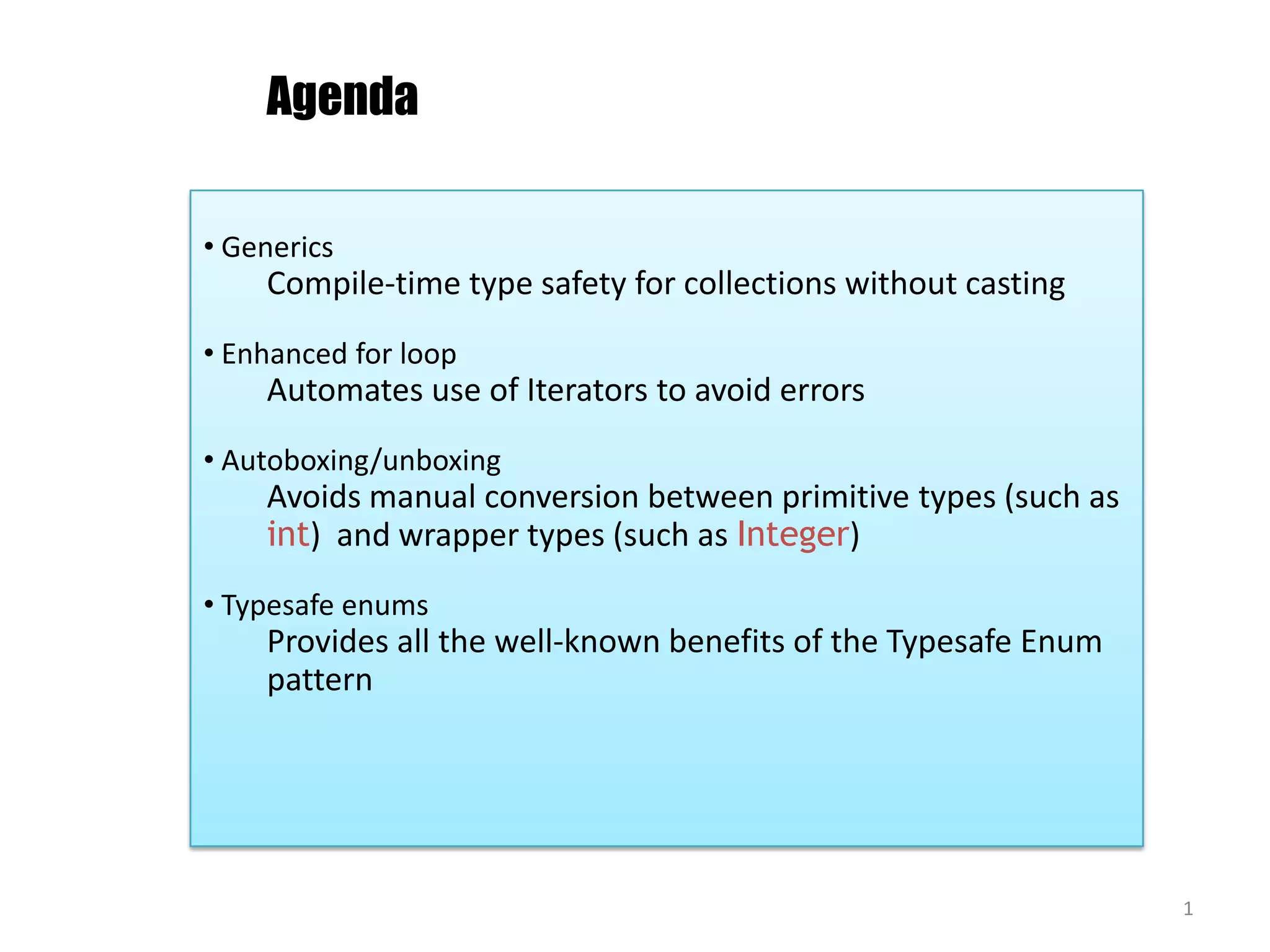
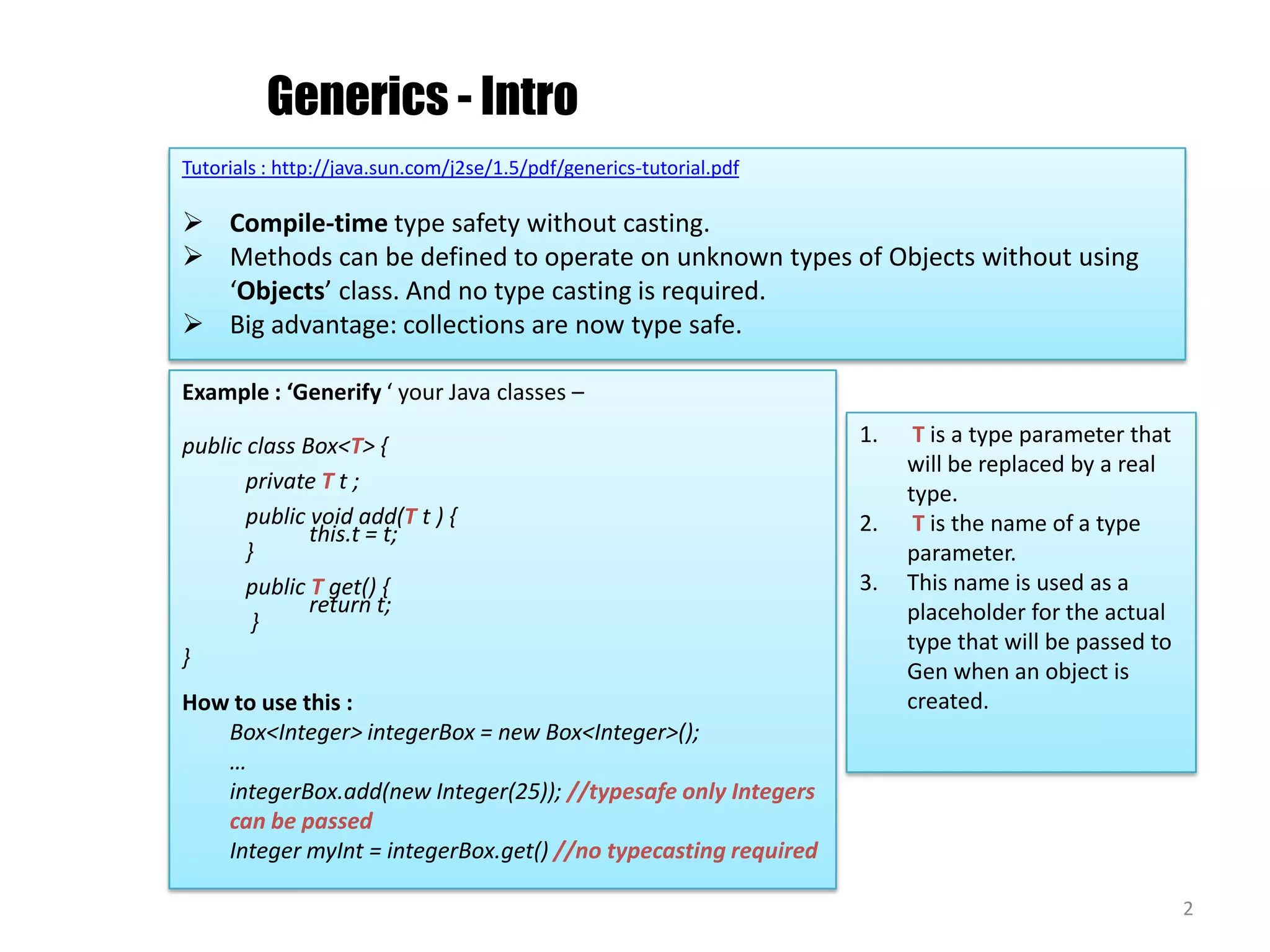
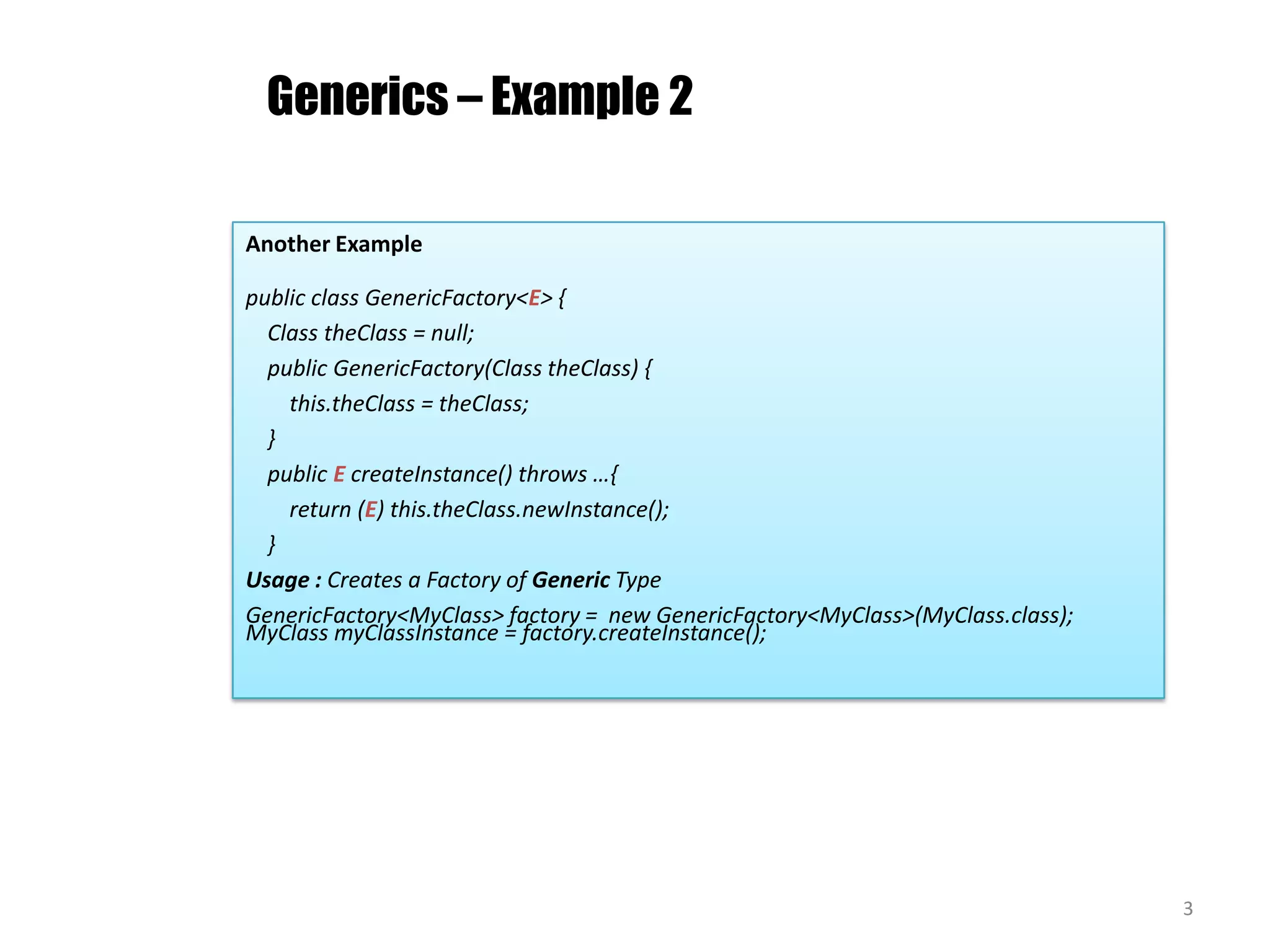
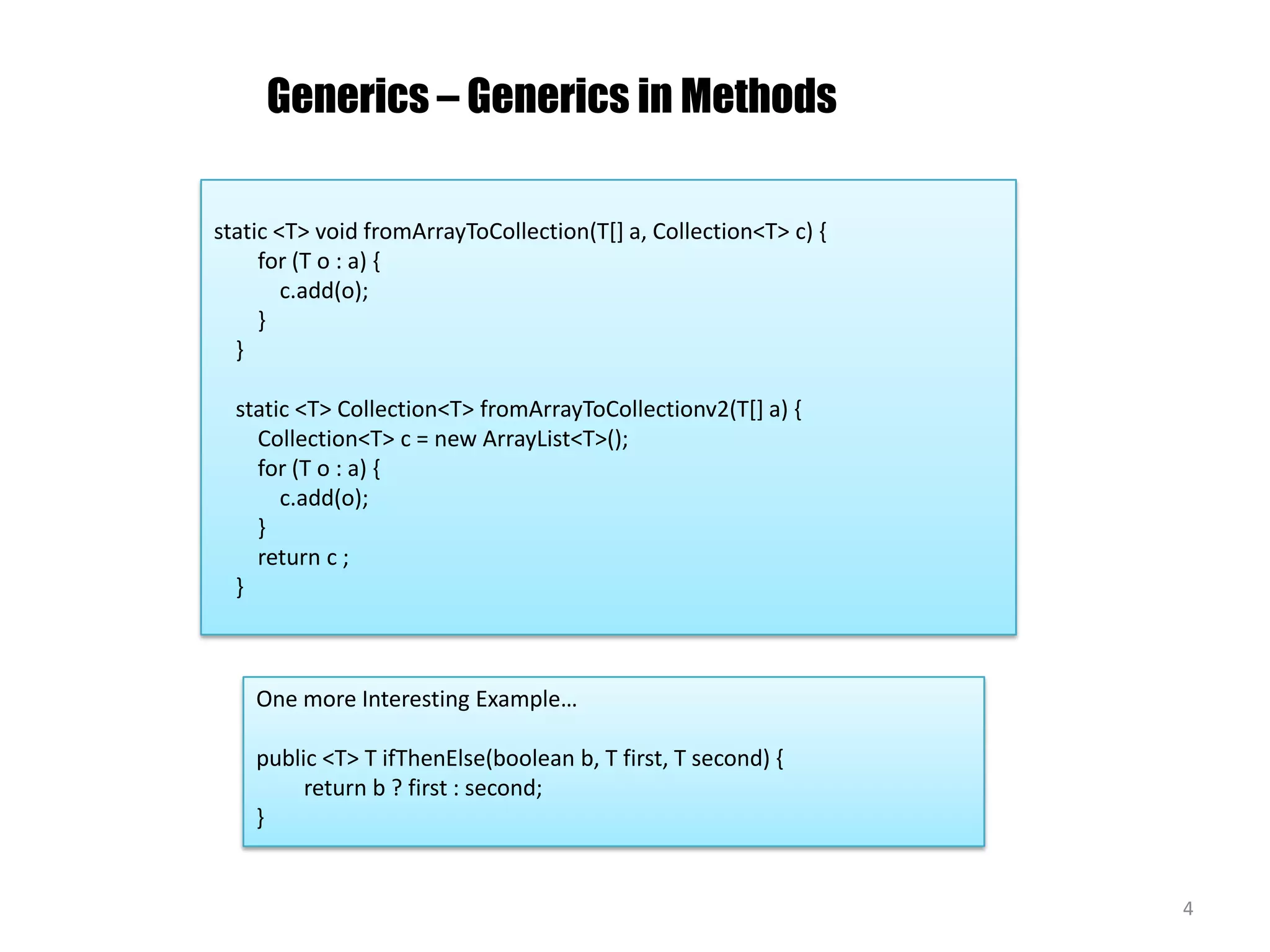
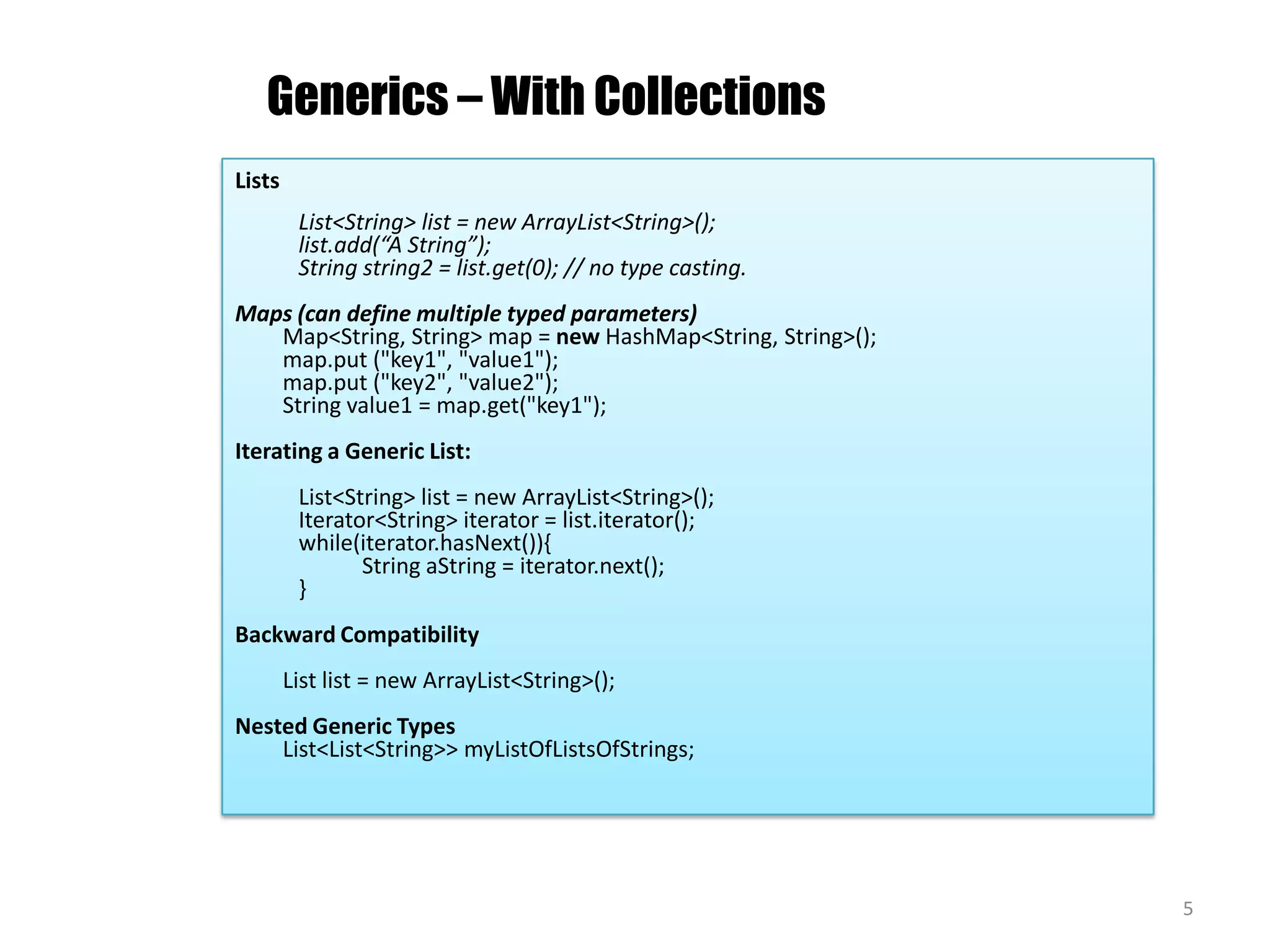
![Generics – Generics in Methods4static <T> void fromArrayToCollection(T[] a, Collection<T> c) { for (T o : a) { c.add(o); } } static <T> Collection<T> fromArrayToCollectionv2(T[] a) { Collection<T> c = new ArrayList<T>(); for (T o : a) { c.add(o); } return c ; }One more Interesting Example…public <T> T ifThenElse(boolean b, T first, T second) { return b ? first : second; }](https://image.slidesharecdn.com/slidesharepresentation1-100922072659-phpapp01/75/Java-New-Programming-Features-6-2048.jpg)
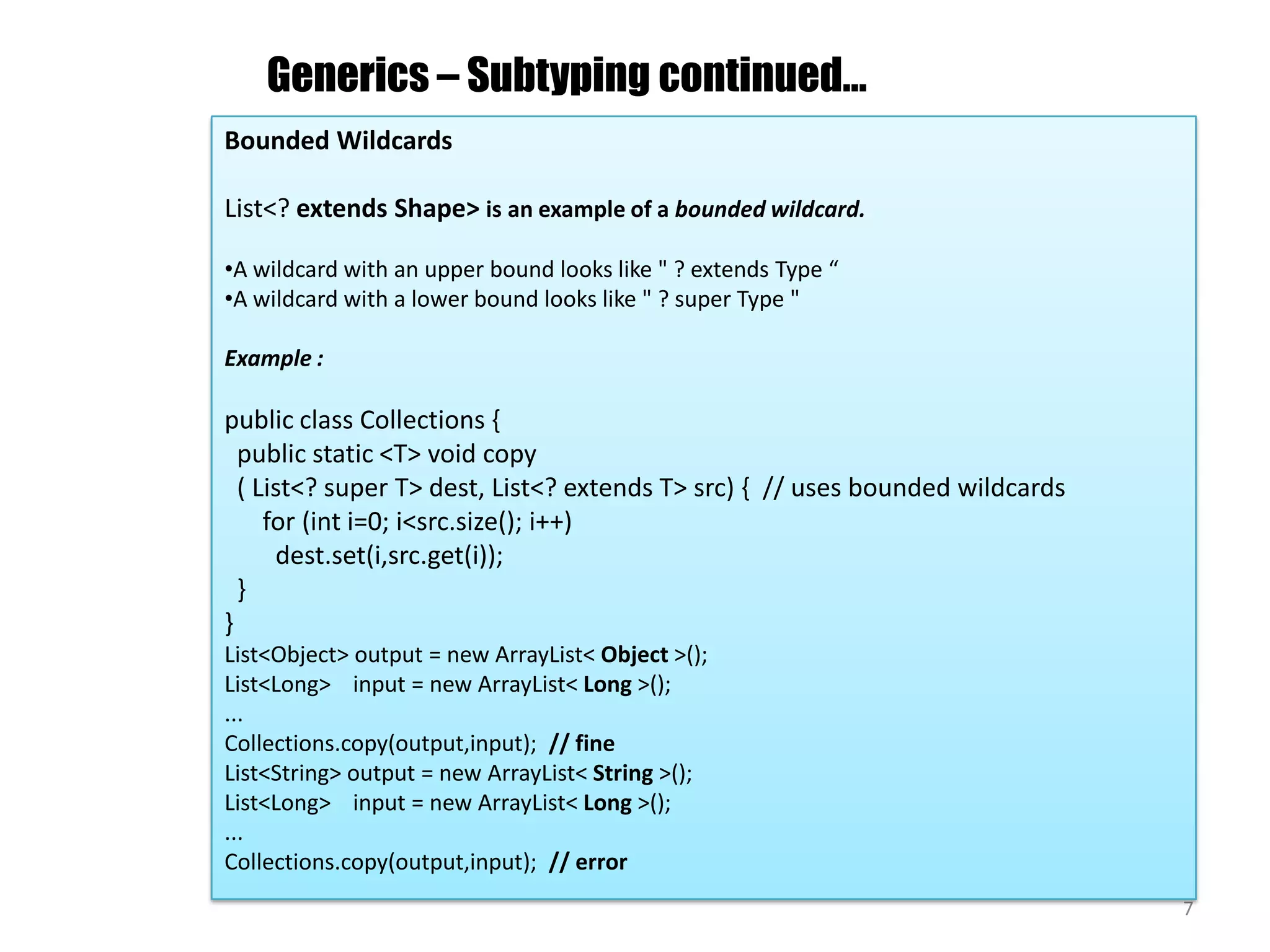
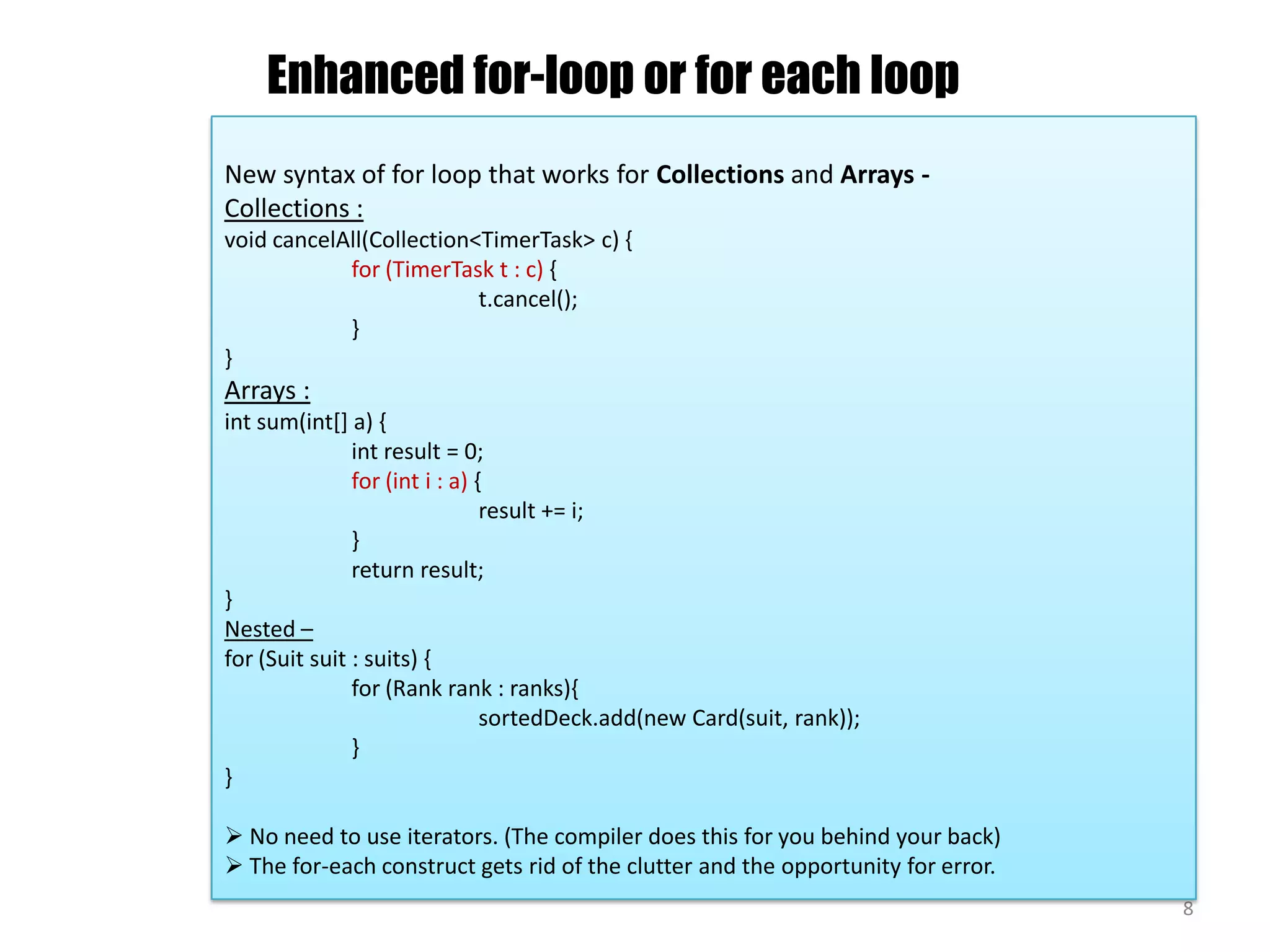
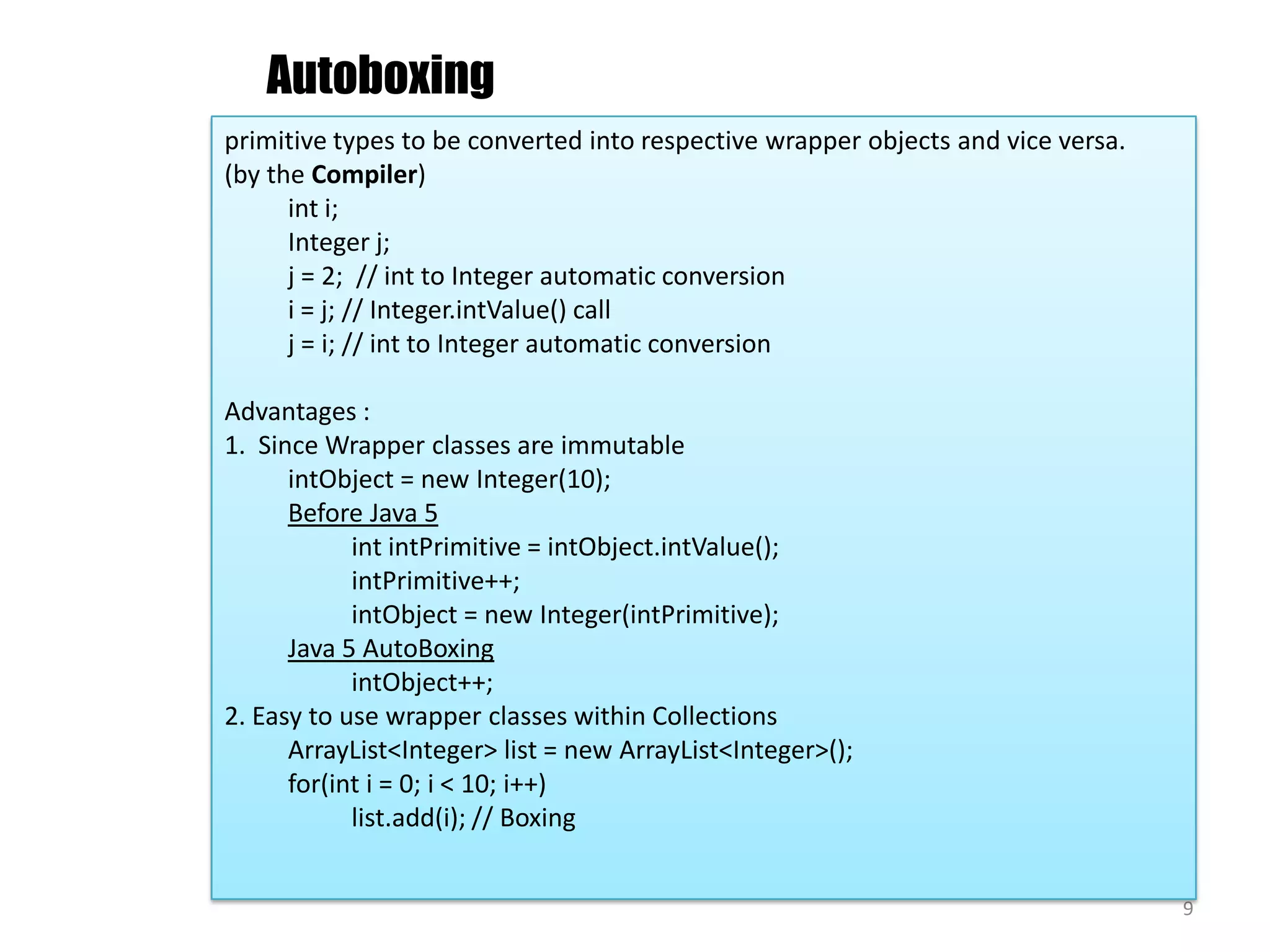
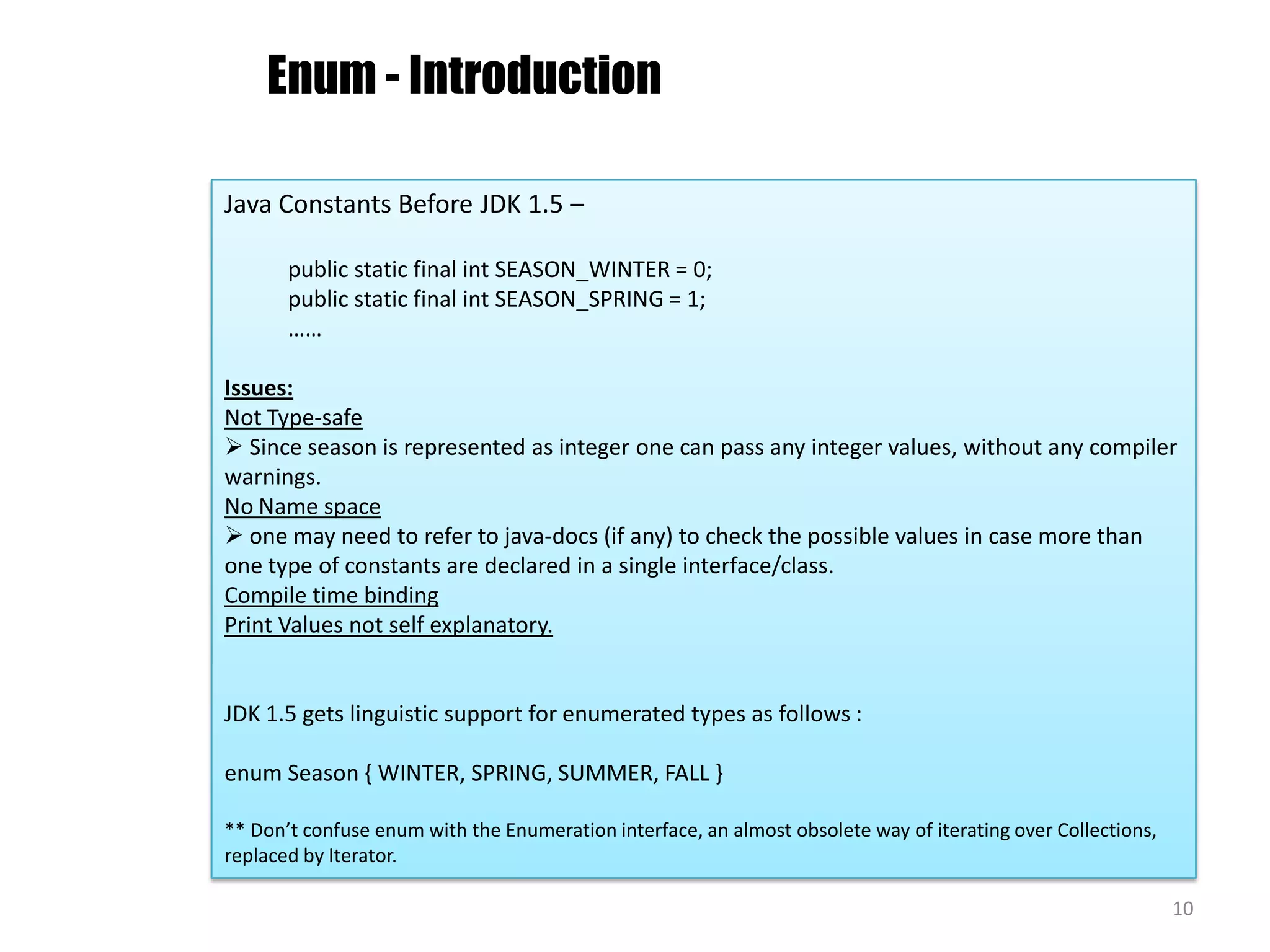
![Enhanced for-loop or for each loop8New syntax of for loop that works for Collections and Arrays - Collections :void cancelAll(Collection<TimerTask> c) { for (TimerTask t : c) { t.cancel(); } }Arrays :int sum(int[] a) { int result = 0; for (int i : a) { result += i; } return result; }Nested –for (Suit suit : suits) { for (Rank rank : ranks){ sortedDeck.add(new Card(suit, rank)); }} No need to use iterators. (The compiler does this for you behind your back)](https://image.slidesharecdn.com/slidesharepresentation1-100922072659-phpapp01/75/Java-New-Programming-Features-11-2048.jpg)
